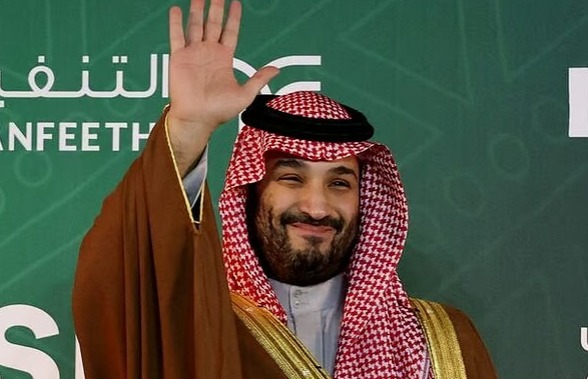Desk Report,
Father under surveillance, brothers detained—how Mohammed bin Salman rose to power in the Saudi monarchy
After the death of King Abdullah, Salman bin Abdulaziz became the new king of the Saudi Empire. King Abdullah was suffering from lung cancer.
Father under surveillance, brothers detained—how Mohammed bin Salman rose to power in the Saudi monarchy
Initially, King Salman bin Abdulaziz announced the name of his half-brother Muqrin bin Abdulaziz as the crown prince. Muqrin was 68 years old at the time.
But just three months later, Salman bin Abdulaziz dismissed his half-brother. Instead, he brought 55-year-old Mohammed bin Nayef to that place. He is the king’s nephew. He also announced his 29-year-old son Mohammed bin Salman as deputy crown prince and defense minister.
About 9 years ago, when these events were happening one after another, no one had heard of Mohammed bin Salman in Saudi Arabian politics. No one knew much about him.
On the other hand, the US administration was full of praise for Mohammed bin Nayef. He had taken an FBI (US Central Bureau of Investigation) course on defense. He also took training in counter-terrorism tactics at Scotland Yard; but in August 2009, a suicide bombing attempt was made to assassinate him. Al-Qaeda was blamed for the attack at the time. Mohammed bin Salman is widely known as MBS. Author David B. Ottaway wrote about Mohammed bin Salman in his book, ‘Immediately after becoming defense minister, he (Mohammed bin Salman) began to use his position to become the king’s gatekeeper.’ The aim was to keep an eye on his father.
Various reports have mentioned that Mohammed bin Salman quickly isolated his father from his family and his father’s close friends. It is even said that the king was prevented from meeting his wife, MBS’s mother. David B. Ottaway’s book claims that Mohammed bin Salman effectively put his mother and two sisters under house arrest and did not let his father know anything about it.
Whenever the king asked about his wife, he was told that she had been sent abroad for treatment.
Yemen attack
Mohammed bin Salman quickly began to expand his influence as defense minister. Under his supervision, the Saudi air force launched an attack to liberate the Yemeni capital Sanaa from the Houthi rebels on March 26 of that year (2015). Ottaway writes in his book, “Initially, the Saudi people praised the attack. They thought that their country had finally shown the courage to oppose Iran’s expansionist tendencies.”
“But after a while, the attack became a major problem for the king, Mohammed bin Salman, and Saudi Arabia. In the international arena, this is considered a foreign policy blunder by Mohammed bin Salman.



